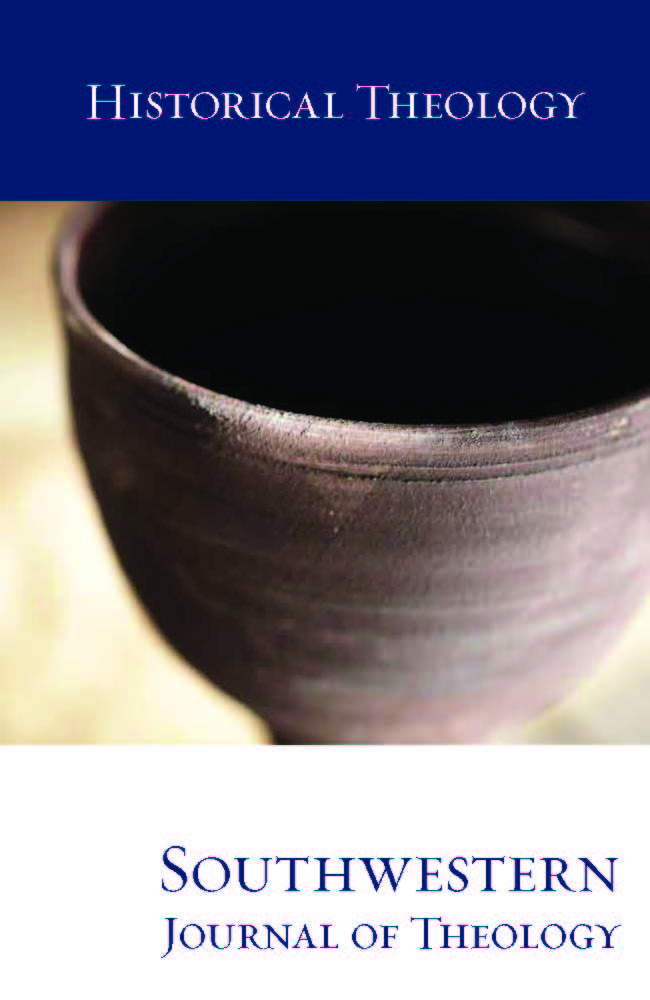
Historical Theology
Southwestern Journal of Theology
Volume 57, No. 2 – Spring 2015
Managing Editor: Terry L. Wilder
By Kate Bowler. New York: Oxford University Press, 2013. 337 pages. Hardcover, $34.95.
Kate Bowler’s first book, Blessed: A History of the American Prosperity Gospel is an adaptation of her Ph.D. dissertation from Duke University. Unlike many published dissertations, Bowler’s book has been made to be very readable and engaging while still maintaining its exacting detail and rigorous citation. Bowler’s purpose in writing this book is “to show how millions of American Christians came to see money, health, and good fortune as divine” (7). She fulfills this purpose well.
Bowler constructs her volume with five chapters in addition to an introduction, conclusion and two appendices. In the first chapter, she begins by describing the origins of the gospel that has been expressed by American prosperity preachers. She finds the origin of the twentieth-century prosperity gospel in the New Thought movement of the nineteenth century, demonstrating the heritage of a uniquely American interpretation of the gospel. In chapter 2, Bowler details the descriptions of faith that is said to be the fuel for the blessings gleaned by adherents of the prosperity gospel. For adherents of the prosperity gospel, “Faith was only faith because it worked” (79, italics original). The third chapter explains the perceived relationship between the believers’ faith and resultant wealth, “Faith operated as a perfect law, and any irregularities meant that the believer did not play by the rules” (92). Chapter 4 explains a second key feature of the prosperity gospel, namely health. Believers ought to be healthy at all times: sickness is a result of a lack of faith. In some cases, as Bowler explains, denial of real sickness in the name of faith resulted in premature death in prosperity believers (140). The fifth chapter describes the theme of victory in the American prosperity gospel. Jesus’ victory on the cross is said to have provided a means for victory in the lives of believers. Thus, “no circumstance could stop followers from living in total victory here on earth” (179). In addition to the content in the body of the text, Bowler also provides two information-rich appendices. The first appendix is a detailed list of the largest prosperity churches and their key statistics. The second appendix explains Bowler’s methodology for identifying churches and preachers as part of the prosperity gospel movement.
The key strength of Blessed is that it is exceptionally well-researched and cited. Bowler provides over six hundred citations of several hundred sources in addition to her extensive personal accounts of experiences with the prosperity movement. She attended many prosperity gospel conferences and services, even making a trip to the Middle East with Benny Hinn. There is no question that Bowler did her homework and has sufficient support for her claims. In addition to the quality of research, a second strength is that Bowler writes with theological detachment. She is careful to present the claims of the prosperity gospel fairly without selecting only the most embarrassing quotes. She also provides illustrations of many errors in the theology of the prosperity teachers, though she does though without labelling them as error. There is little doubt that Bowler has presented a fair picture of the prosperity movement. A third strength of this book is the careful method that Bowler has developed for defining the prosperity gospel movement. The methodology explained in Appendix B is both balanced and accurate, and it provides a basis for developing and applying a necessary label apart from personal opinion. As evangelical scholars seek to categorize prosperity teachers appropriately without merely calling names, Bowler’s appendix will provide helpful guidance.
Along with its several strengths, there are also some important weaknesses. First, Bowler’s theological detachment sometimes prevents her from offering necessary theological criticism. Early on, Bowler declares, “The Gospel is good news. Just how good is for readers and the faithful to decide” (10). Though this book is extremely informative, Bowler’s detachment could allow this book to be read in affirmation of a dangerous perversion of biblical teachings on faith, wealth, and health. Contributing to this weakness, Bowler ignores the careful theological critique of the prosperity gospel, published in 2010 by David W. Jones and Russell S. Woodbridge.1 Bowler’s book repeats many of the themes that Jones and Woodbridge highlight, but, despite the mere thirty miles between their academic institutions, Bowler does not mention their important text among the hundreds of sources she cites. A second weakness of this text is that it fails to rightly emphasize the negative economic consequences of the prosperity gospel, as many of the adherents were led into bankruptcy by “naming and claiming” large houses with expensive mortgages just before the housing market sharply declined several years ago. Additionally, while Bowler mentions some victims of prosperity teaching who have died as a result of a refusal of medical care, these examples are largely glossed over in the text.
Overall, this very readable book is a valuable contribution to the scholarly discussion on prosperity theology. Blessed is the best history of the development of the prosperity gospel written to date. It is an important addition to the library of pastors or scholars who regularly encounter the prosperity gospel in their ministry.
- David W. Jones and Russell S. Woodbridge, Health, Wealth & Happiness: Has the Prosperity Gospel Overshadowed the Gospel of Christ? (Grand Rapids: Kregel, 2010). ↩︎





